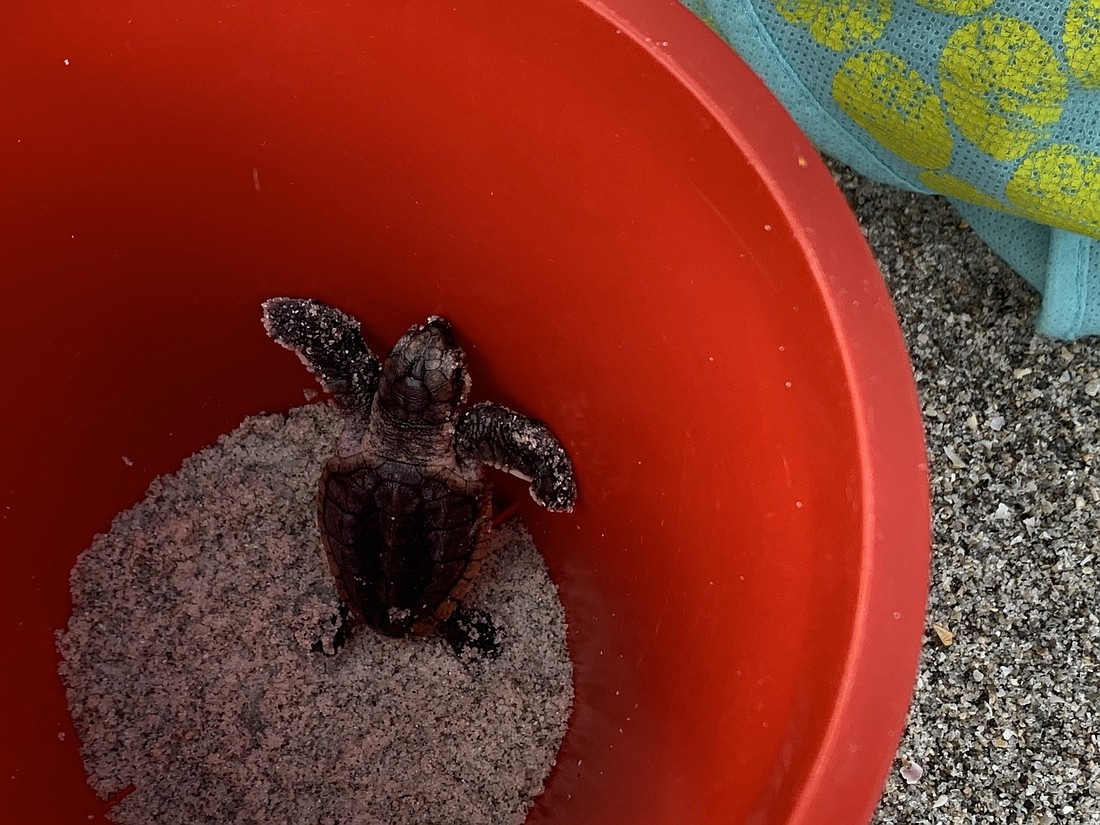- December 21, 2024
-
-
Loading

Loading

The town of Longboat Key will change its sea turtle protections after months of discussion.
While the changes take effect on Jan. 2, 2022, by law, they are applicable during turtle season, which runs each year from May 1-Oct. 31.
Planning, Zoning and Building Director Allen Parsons said the changes are going to require outreach and education to inform property owners.
“There will be, I think, a strong burden on staff here to help with identifying resources for people to be able to conveniently and easily find some of these products [like] turtle-friendly bulbs,” Parsons said. “As we talked about at the last meeting, different retailers may refer to those differently.”
Here are some of the changes to Chapter 100 of the Town Code:
“This is really educational and compliance-based,” Town Manager Tom Harmer said. “Our code enforcement typically doesn’t go out there and cite someone, especially for the first time.”
Other changes include adding language to explain the permitting review process, adding a lighting inspection process for new developments, prohibiting temporary lights at nighttime such as lanterns or tiki torches and nightly storage of portable recreational equipment.
The reason for Longboat Key’s changes is state data shows the island has a high sea turtle disorientation rate compared to other Florida municipalities.
“That’s one of the biggest things, visible light from the beach during season at night that can be those disorientations, so I think that is a big thing,” Harmer said.
Mote Marine Laboratory and Aquarium public relations manager Stephannie Kettle said that in 2020, Longboat Key had the second-most sea turtle disorientations among Florida beaches.
In an email to Harmer, Parsons has cited state data that shows Longboat Key had 130 disorientations among the 1,136 sea turtle nests in 2020.
“We encourage the town to follow the guidance of FWC to tint windows, to shield light sources that are visible to the beach, and to utilize FWC approved marine turtle fixtures and bulbs,” Kettle wrote in an email.
Initially, town staff considered window tinting as a potential resolution to fix beachfront-lighting issues, though price considerations in switching from 45% of light transmission to 15% proved overwhelming.
In April, town commissioners heard from an engineer who explained there is typically a higher cost for darker tinted glass. The higher cost prompted staff and commissioners not to require window tinting as part of the ordinance.
Also, Parsons said any permit the town receives before Jan. 2, 2022, is subject to the town’s existing code.
Parsons and commissioners acknowledged the difficulty of shopping for lighting products that are considered “turtle-friendly.”
Harmer said staff would plan to brief commissioners in December or January 2022 on their efforts to let property owners know about the specific changes they need to make.